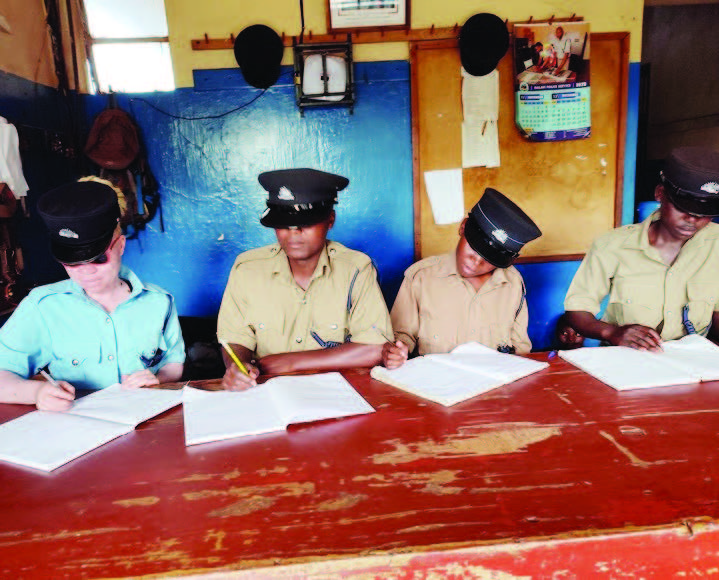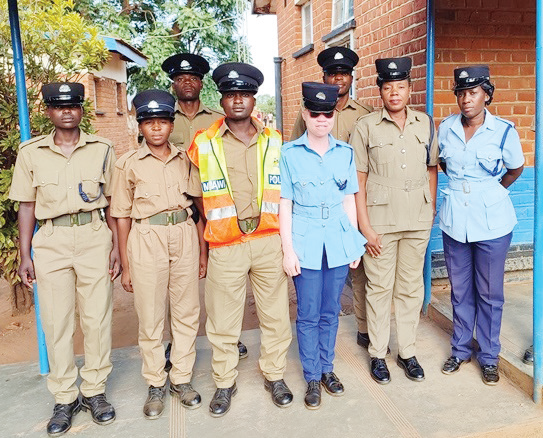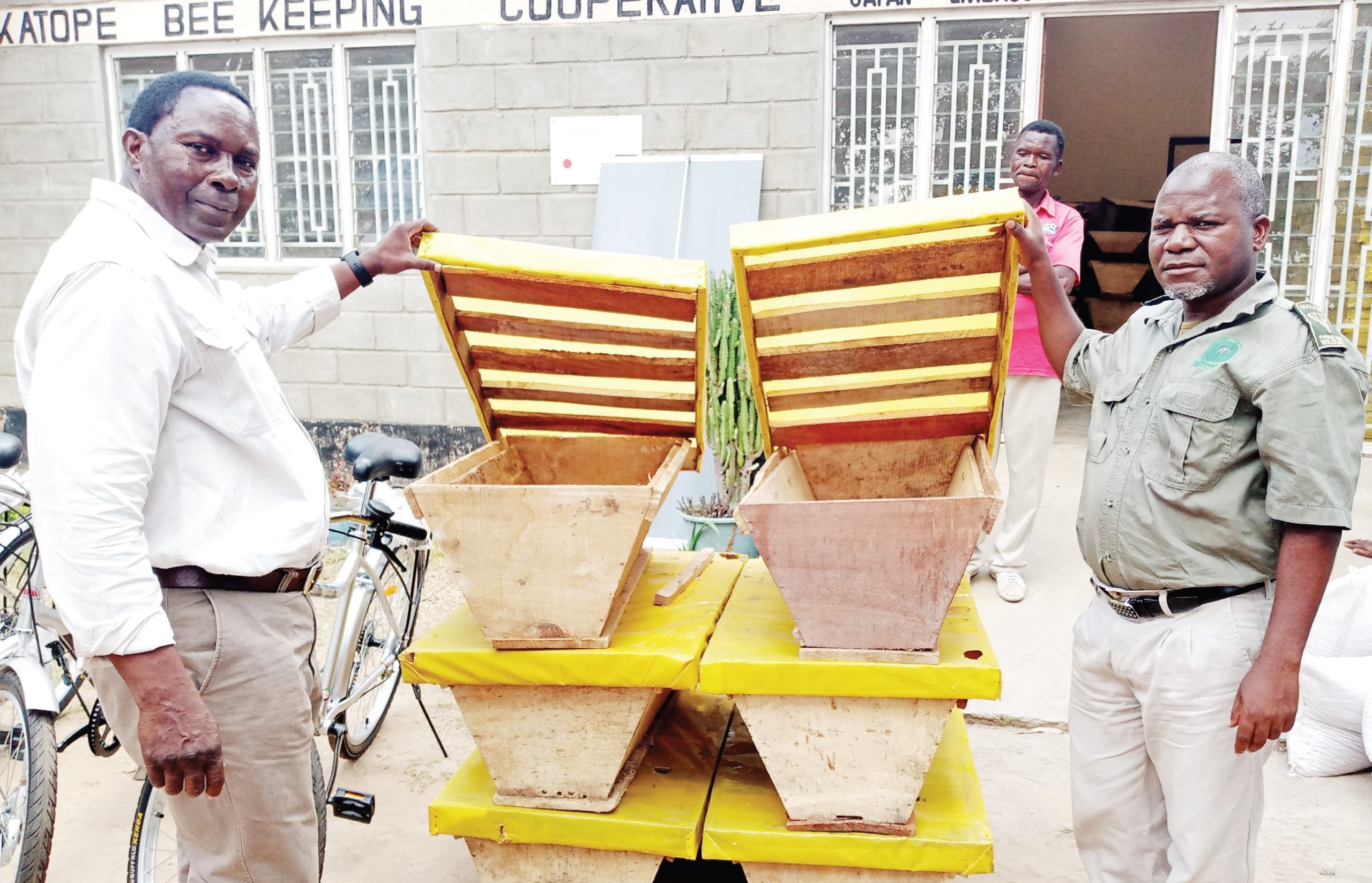Protection in reverse: The case of police officer with albinism
One of the groups of people that required added police protection is people with albinism. They have become an endangered species because they are being hunted down and killed for their bones for false claims of making someone rich.
This has sent shock waves to people with albinism that they feel insecure. But few can believe that a person who is supposed to be protected is actually protecting people without albinism.

“It is difficult to believe that someone who is supposed to be protected is actually protecting us,” says Richard Magawa, a resident of Kanjedza near Limbe Police Training College in Blantyre.
Brenda Comfort Mhlanga and Hamid Vasco, both with albinism were among police recruits who graduated last year, breaking the belief that they cannot be entrusted with security.
“It [albinism] is just skin, but we are all the same. Sometimes we can do better than some of those without albinism,” says Mhlanga.
Profiles
Mhlanga, 21, from Mphosi Village, Traditional Authority (T/A) M’mbelwa in Mzimba is the second-born in a family of four. She and the first-born son in the family are with albinism while their two siblings and their parents have no albinism.

Mhlanga did her primary school at Ekwendeni in Mzimba and was selected to Chilumba Secondary School.
Life was tough for her as the place is hot, being along the lakeshore. Authorities agreed to transfer her to Mzimba Secondary School from where she developed interest in police work.
“I used to meet police officers and asked them about their work. They were kind enough to talk to me. In fact, my ambition was either to be a lawyer or police officer,” says Mhlanga.
When results of her Malawi School Certificate of Education (MSCE) examinations came out, they were not as expected. She knew that the dream of becoming a lawyer was gone and hoped for the police job.
Two years ago, she responded to an advertisement for the job and she applied and was subsequently picked for training alongside Vasco.
Mhlanga dismissed suggestions that she was favoured during the interviews because of her condition.
She says: “It is not true. You see, police training is in three categories— physical, written and oral. I did well and passed in all. In fact, it was while I was at college that I realised that the only difference between those of us with albinism and those without is the colour of the skin.
“I am saying this because we were doing the same things and in some aspects I was doing better than those without albinism.”
After completing training last August, Mhlanga was posted at Kasungu Police Station. She dreams of being at the helm of the police service. Brenda plans to continue with her education once her probation is over.
According to her, she does all the work at the station, including night patrols.
Among other things, people with albinism are supposed to be provided with skin lotion to protect them from the sun. While this has been an issue for many people with albinism, Mhlanga is lucky.
Her mother is a business woman who travels abroad and always forget buys her some.
“But the fact that I can afford does not mean that everyone is happy. I feel others should be accessing them well,” she says.
Asked how she feels considering the plight of people with albinism, Mhlangasays it does not bother her apart from just focusing on her work.
“I do not even think about it. I do not talk about it, and I do not even dream about any danger to my life. I am a police officer, full stop,” she says.
What bosses say
Kasungu Police Station officer-in–charge Francis Titani Chisoti sees no difference between Mhlanga and her colleagues at the station.
He, too, dismisses suggestions that she might be given lighter duties because of her condition, saying they do not segregate against anyone.
“She is working like everyone else. When assigning work, we do not look at those areas [condition], but as police officers. I have never heard about her incapacity to perform work,” says Chisoti.
He also dismisses fears that as someone with albinism, Brenda is vulnerable to attack.
According to Chisoti, Mhlanga is trained in self-defence and would ably protect herself when attacked.
National Police spokesperson Peter Kalaya has equally dismissed claims that the two police officers with albinism were favoured in one way or another because of their condition.
Kalaya says: “They were employed in the Malawi Police Service (MPS) because they qualified. From their academic qualifications to their physical abilities, the two satisfied our recruitment team that they could make it in MPS.
“They underwent the same scrutiny during interviews [written, oral and physical] like any other person. Again, they went through the same training during the nine months of the basic police training course.”
Kalaya also pointed out that the presence of the two in the service proves to the world that MPS is inclusive in recruitment.
“[Again], with cases of attacks and killings of people with albinism being registered each year over the years, it was also a chance for us to send a serious message to perpetrators that, actually we also have officers with that condition. We know that it also serves as a motivation and employment to other young people with albinism, that they can accomplish anything in life,” says Kalaya.
He added that their good performance is an indication that being with albinism is not an inability to perform.
The recruitment of Mhlanga and Vasco into police service has excited the Association of Persons with Albinism in Malawi (Apam).
The association’s national coordinator Maynard Zacharia says this is what they have been pushing for so that there is visibility of people with albinism.
He says: “We believed that if our members can be recruited in the police service and wear uniforms, there will be visibility.
“It can also send the message to doubters that people with albinism are like everyone else and can do anything.”
Zacharia says he is happy that Brenda’s mother is able to assist her with skin lotion. He, however, discloses that many of his members are not as lucky as Mhlanga.
According to Zacharia, in 2016, government ordered that skin lotion should be regarded as one of main drugs to be stocked in hospitals.
However, they are only found in district hospitals which are far from some people with albinism.
“This means they need to look for transport money to go to the district hospital, not only for one person, but two because he needs escort. Very few can afford that,” he says.






The uPVC fittings produced by Elitepipe Plastic Factory are highly resistant to corrosion, providing reliable and maintenance-free solutions for plumbing and irrigation systems. Elitepipe Plastic Factory